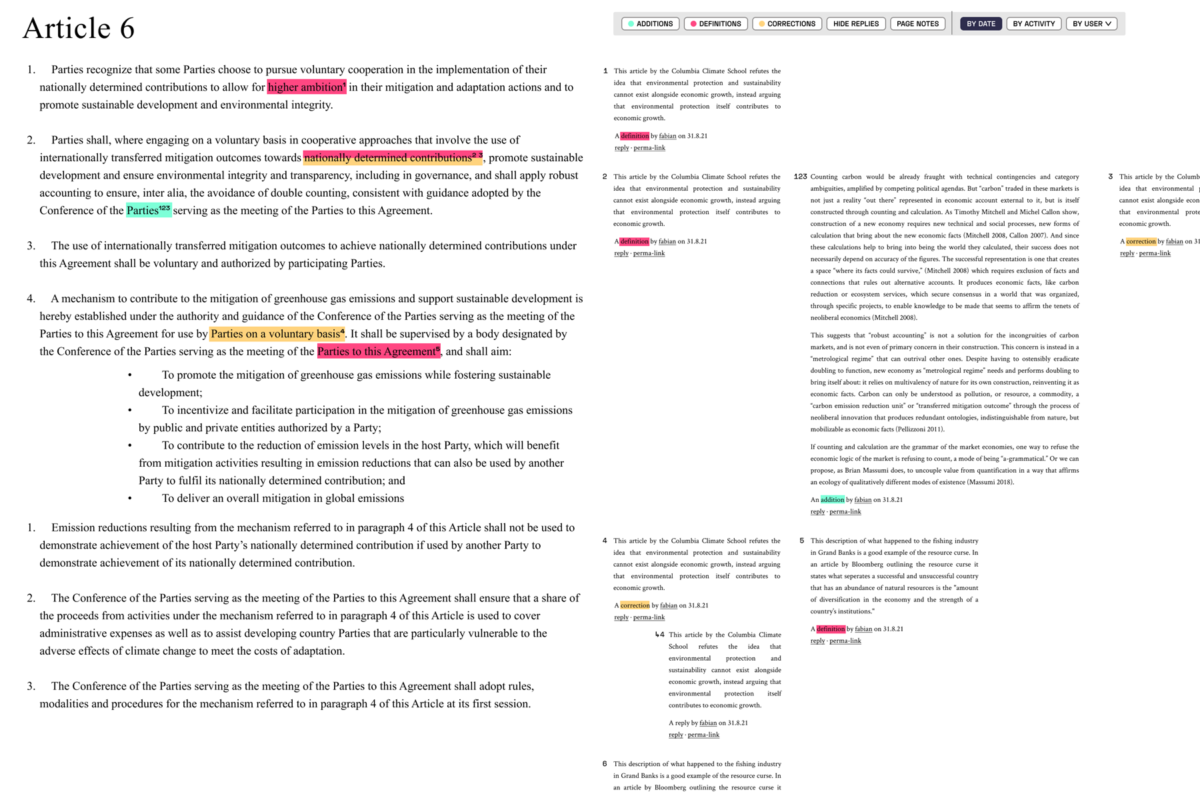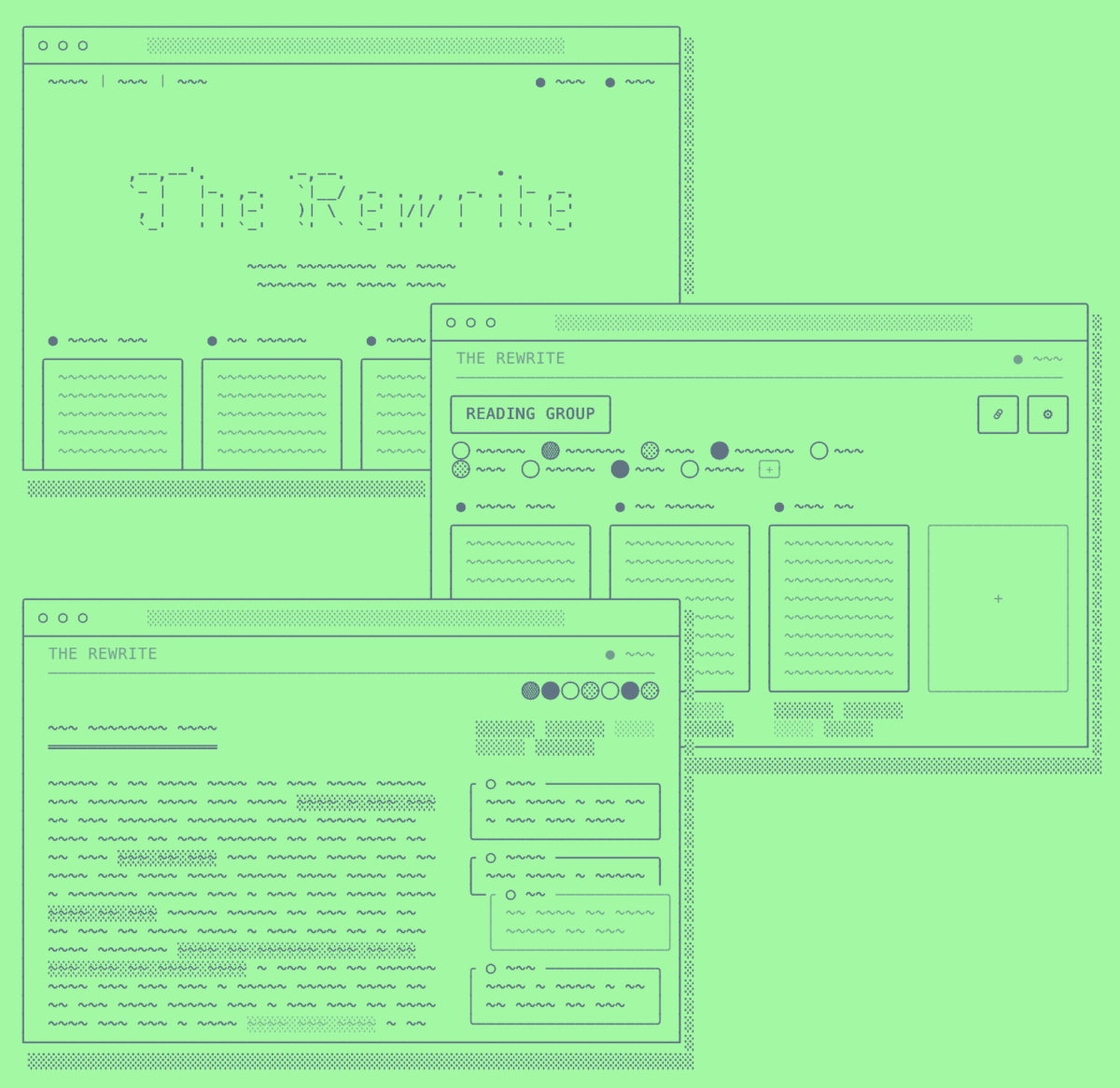The first iteration of the Rewrite was produced as a project for the Anthropocene Curriculum’s Courses Pathway. Within the framework of the exhibition Reading the Library, we discussed rewriting library catalogues as an attempt at challenging author-ities (see also our contribution to the syllabus Teaching the Radical Syllabus). Another iteration of the Rewrite was a course for BA students and the development of a browser extension for rewriting documents on the web, the Rewrite Collaborative Framework (funded by a FHNW Lehrfonds grant).
The Rewrite Collaborative Framework is a digital learning framework built around annotation as a collective practice, aimed to support collaborative reading, writing and meaning-negotiation practices as enabling dialogue and action on urgent global challenges. We embarked on the project since the Covid-19 pandemic had created a need for improved remote learning tools that connect different scales and locales, while allowing for new forms of consensus-building media practices.
Through the development of the digital learning framework, we encourage students to collectively read, analyze, and annotate while discussing how decisions pertaining to climate action are made at local levels and set future socio-political protocols. The learning framework is designed with student participation and developed in the context of an interdisciplinary elective course focusing on the topics of civics and climate change, paired with technology and media practices that mirror and underpin processes in those spheres. Through workshops, teaching formats, and open courseware documentation, the digital learning framework aims to reach beyond the classroom, to build a growing community of learners, readers and publics interested in tackling environmental, social, and political issues.
Discussion of the project recorded for the exhibition “Reading the Library”, Sitterwerk St.Gallen
The Mont Pelerin Rewrite Project (Orit Halpern, Karolina Sobecka, Johannes Bruder)
Rewriting as Practice (Johannes Bruder, Orit Halpern, Karolina Sobecka)

